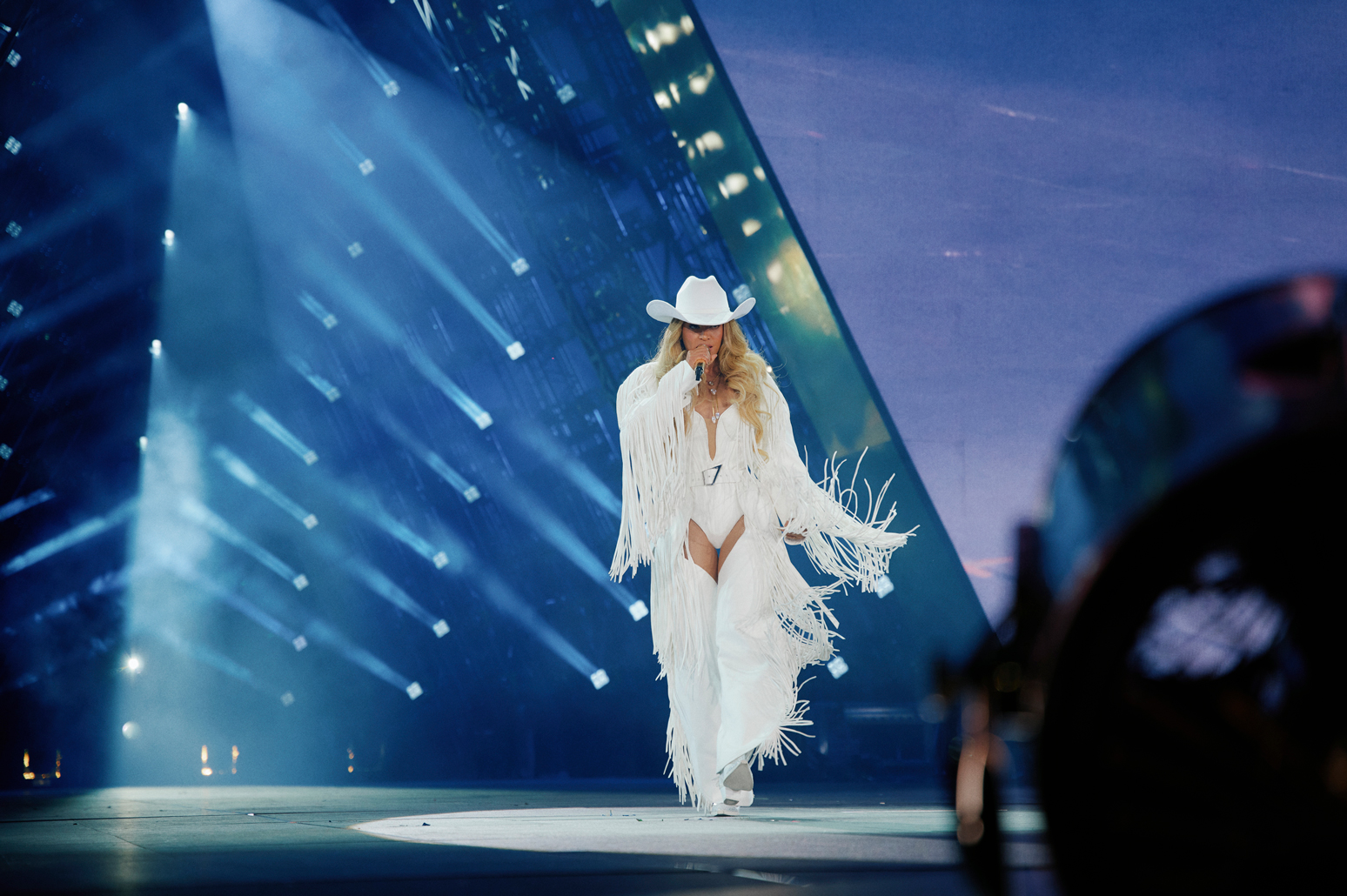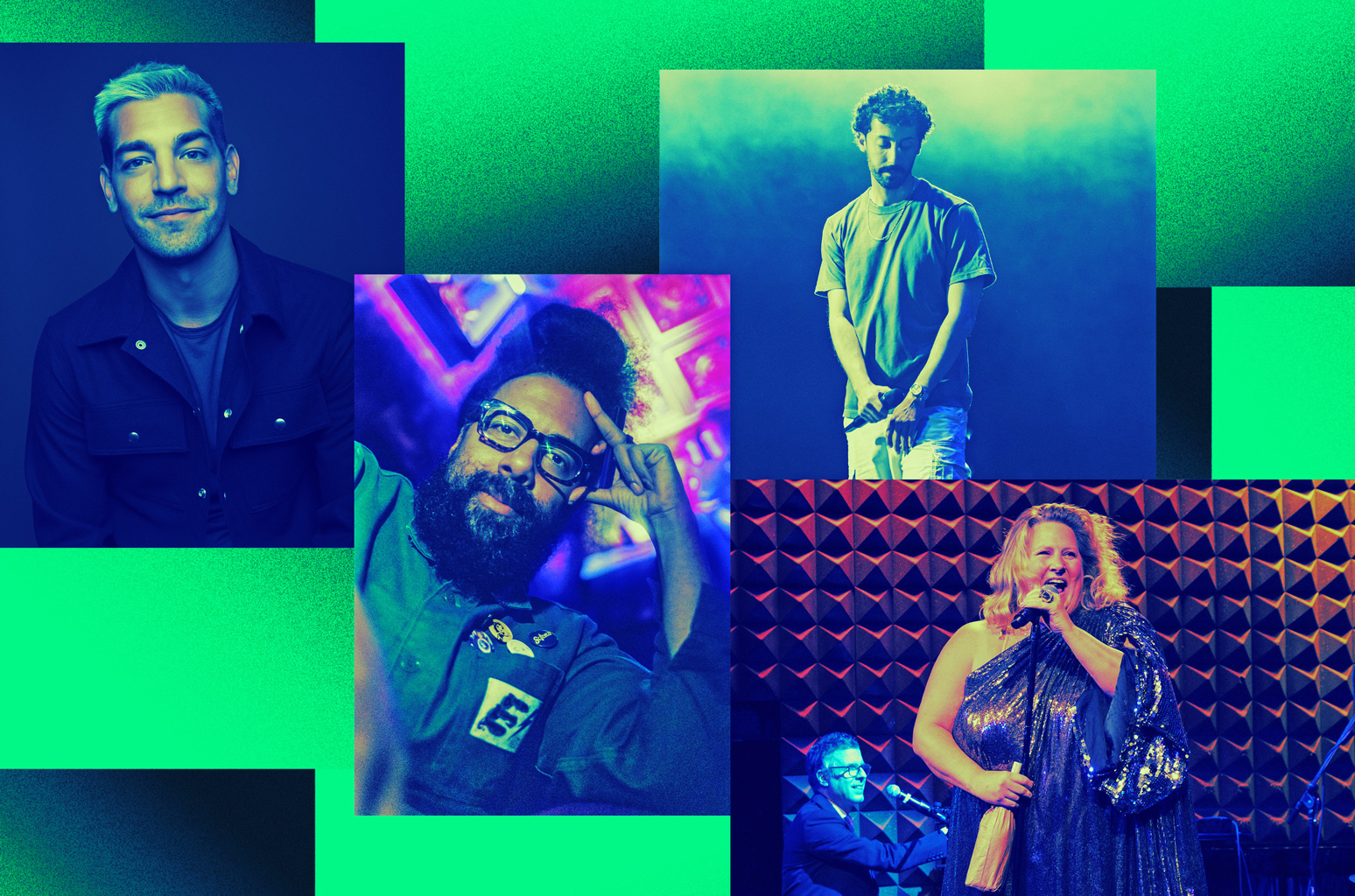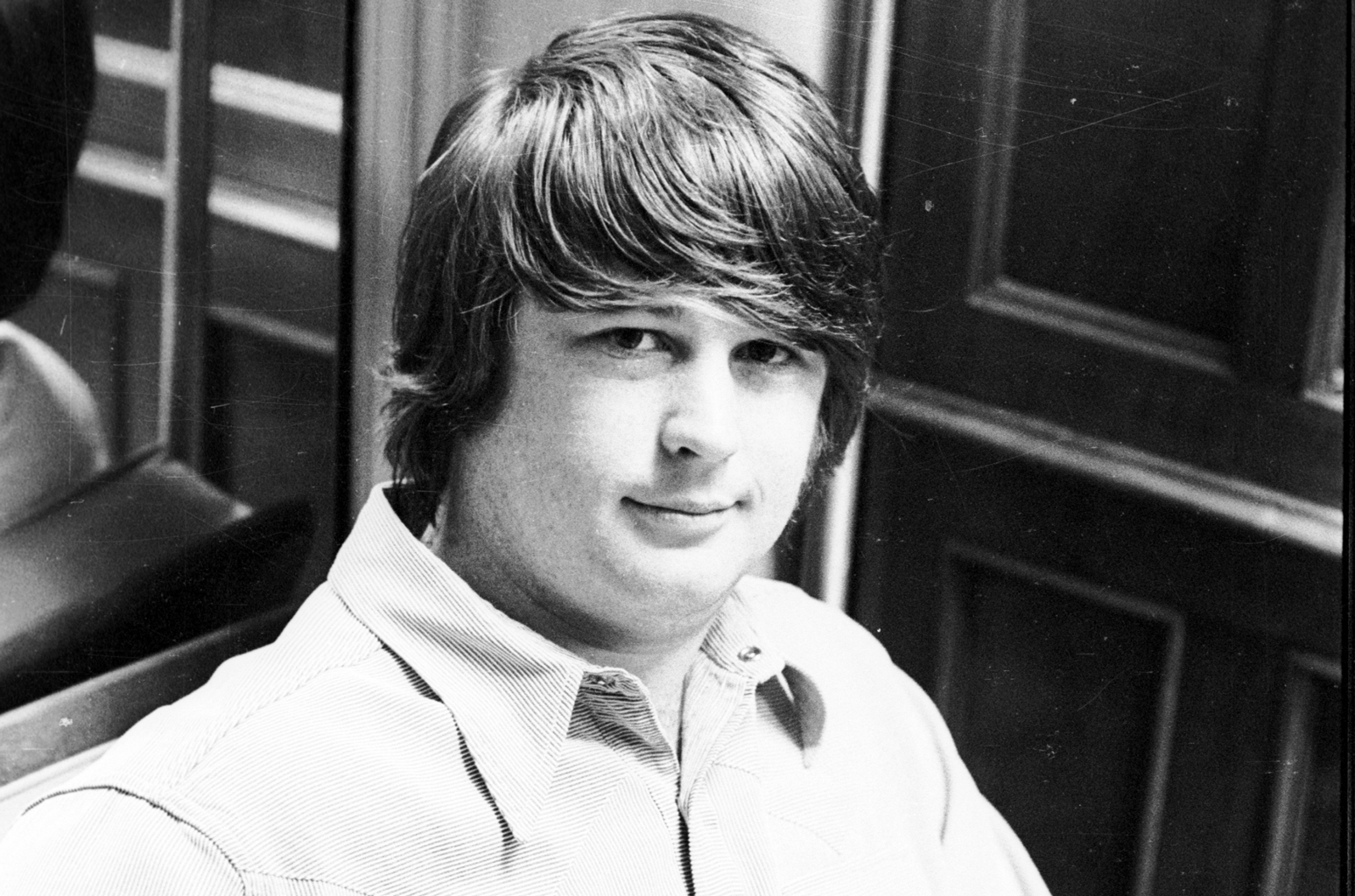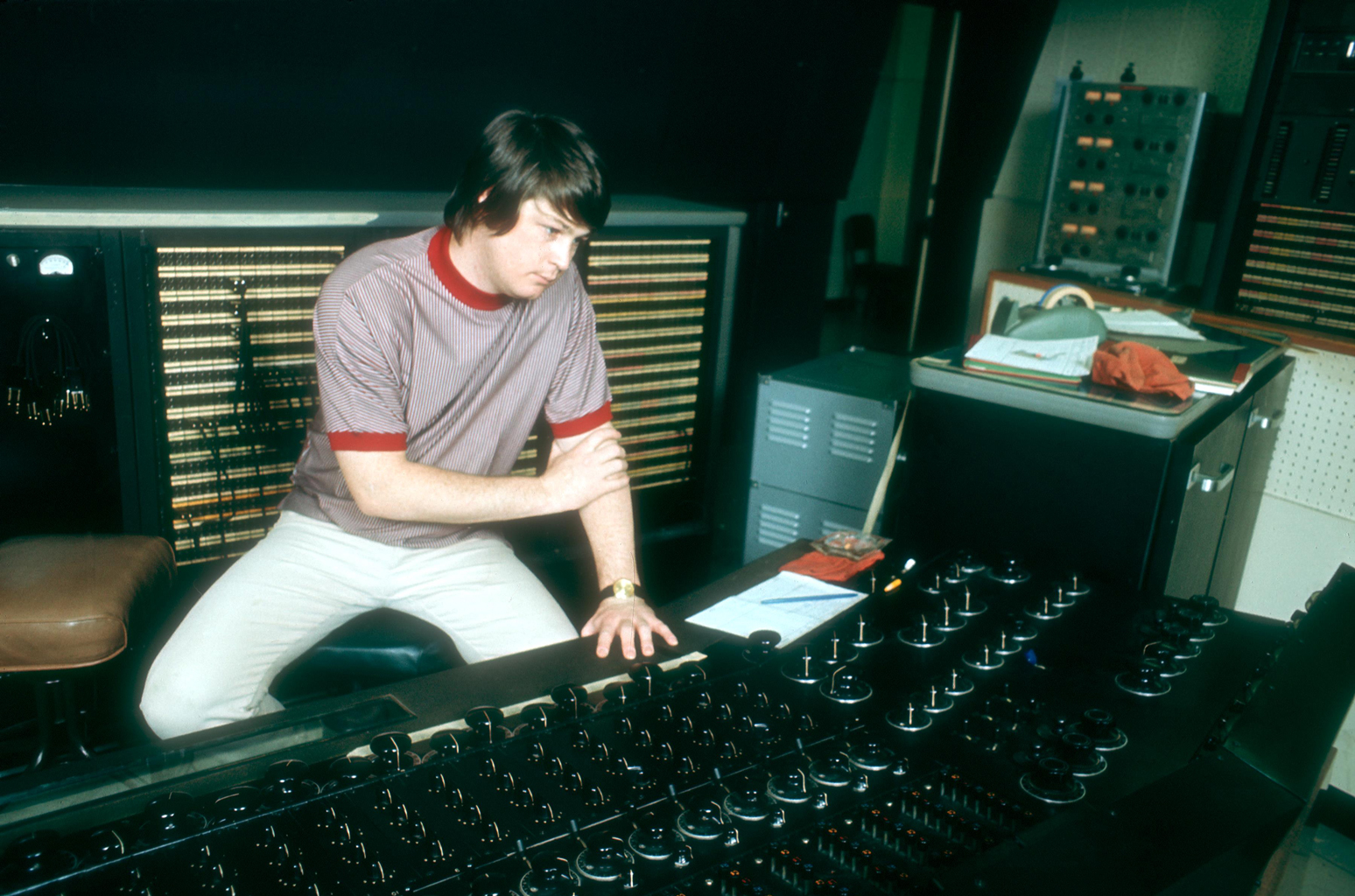Entertainment
20 Questions With Tokimonsta: ‘I Want to Feel the Warmth of An Audience, I Want to Feel Chaos, I Just Want to Feel Alive Again’
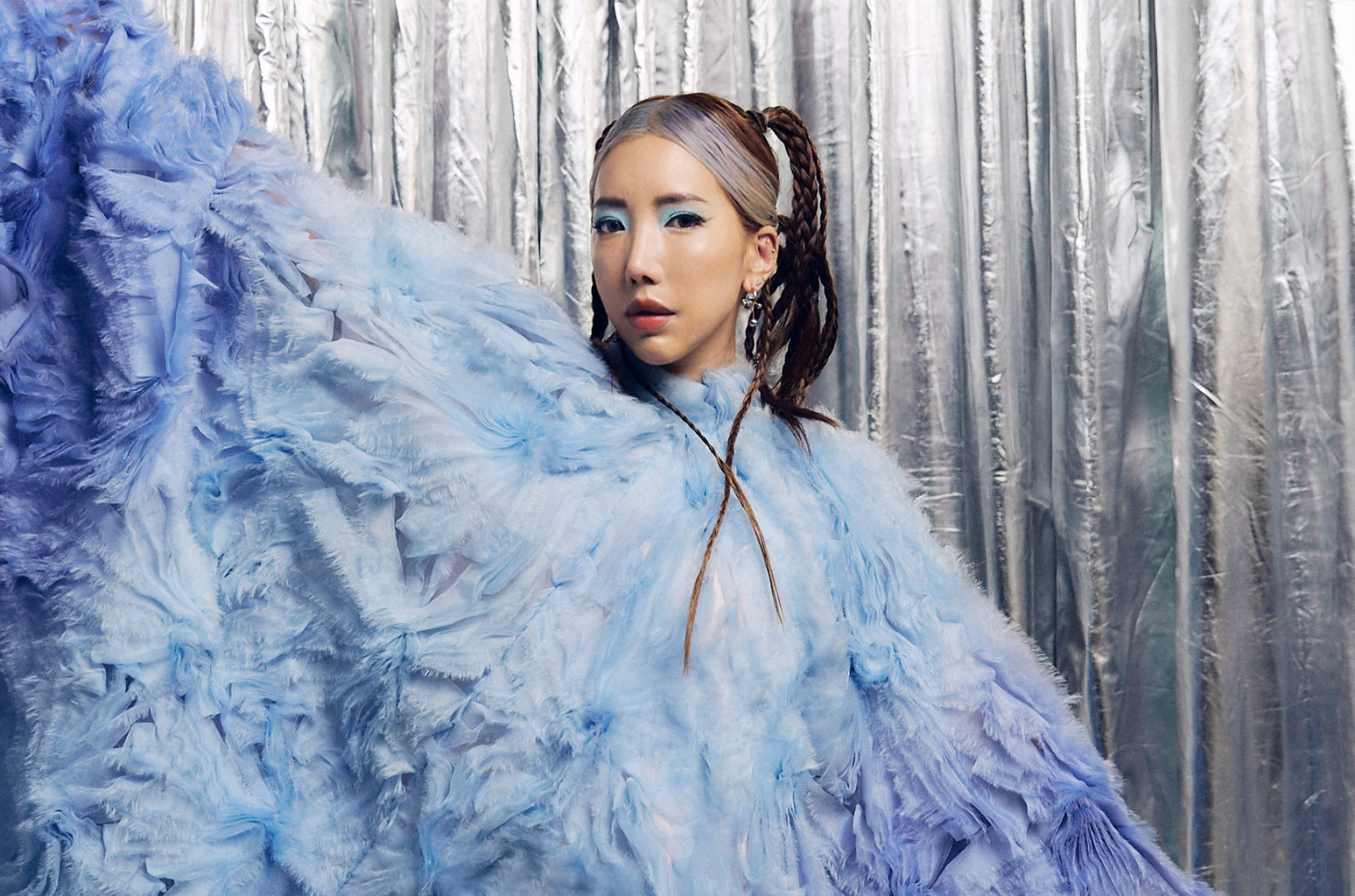
Eternal Reverie, the seventh studio album by Tokimonsta, is out today (Mar. 7). Releasing it now wasn’t the original plan.
Last September, the Los Angeles based and globally known electronic producer announced that she was delaying the album’s release and cancelling its related tour due to “an extremely urgent personal matter.” Weeks later, she posted an update saying that she’d lost her best friend to an aggressive form of cancer.
“I’ve suffered from levels of burnout in the past, but I’ve never suffered from deep depression,” the producer born Jennifer Lee tells Billboard over Zoom. “I’ve never just cried non-stop all the time. Even during the hard times, I always maintained a positive outlook, but this year was really hard on me, and all I had was music.”
She says making her own music and listening to the music of others has, in her grieving, been a salve. Later this month, she’ll offer her work to others when the rescheduled Eternal Reverie tour begins at Ultra Music Festival in Miami and then extends across the United States for a run of club shows and festival plays including Coachella and EDC Las Vegas. Her always inventive and experimental sets will surely be populated by music from the new album, a 14-track collection that holds the same nuance and sophisticated that’s always characterized her output, with sounds ranging to overtly danceable to headier, more meditative fare like “Reverie.”
On the project, Toki welcomes back regular collaborators Anderson .Paak and Los Angeles singer/songwriter Gavin Turek, along with new counterparts like Cakes da Killa and Grouptherapy. Containing not just musical depth but a surrealistic and deeply considered visual aesthetic, Eternal Reverie is out via her own Young Art label.
Here, Tokimonsta reflects on the path that brought her to making music, how the artists and fans in electronic music are maturing, the loss she’s suffered and why she believes playing live will be good for her.
1. What is the first album or piece of music you bought for yourself, and what was the medium?
I bought a single for “Waterfalls” by TLC and “Gangsta’s Paradise” by Coolio. I bought them as singles. I think it might have been on cassette tape — which is weird because there were CDs, but I think in my mind a cassette seemed cooler. Also, in hindsight, I probably shouldn’t have just gotten singles — because, like, what are you going to do, just listen to one song over and over again? But that is what I ended up doing.
2. What did your parents do for a living when you were a kid, and what do they think of what you do now?
My mom had a small chain of Japanese fast food places. They’re teriyaki chicken spots. We’re Korean, but that was her [delving] into entrepreneurship as an immigrant. Her view on my career has evolved over time. In the beginning, she was like, “There is no way.” She didn’t really understand the difference between being, like, Beyoncé, or being someone performing in the corner at a bar. She didn’t know that there was anything in between. So, clearly she thought I was gonna fail. But here I am, many, many years later, and now she’s bragging about me to all her old Korean lady friends.
3. What was the first non-gear thing you bought for yourself when you started making money as an artist?
Probably clothes, but let me think of something that was more meaningful. A Vitamix. I know that sounds dumb and random, but it is a privilege to own a fancy blender.
4. If you had to recommend one album for someone looking to get into dance music, what would you recommend?
I don’t know if I could recommend dance music specifically. My instinct is to actually [recommend] DJ Shadow, which is [an introduction] into non-dance electronic music, Endtroducing….., or Preemptive Strike. But it’s not dance music, it’s more heady electronic music. At this point I think people are aware of what dance music is very generally, so if I had an opportunity like this, I’d want to show people the different sides of what dance music could mean.
5. It seems that lot of people use “dance” and “electronic” interchangeably, but it sounds like you have a clear sense of the differences. Do you want to unpack that?
Let’s say this: Electronic music is music made with electronic instruments — synthesizer-heavy, computer-heavy, not as many acoustic instruments. Dance music is club music. Dance music makes you want to dance. So in my mind, and I’ve had this discussion with my peers, the broader umbrella is electronic music, and underneath electronic music you have ambient music, dance music and different versions of dance music, because then you have drum & bass, house, techno, beats, etc. All dance musicians are electronic musicians, but not all electronic musicians are dance musicians.
6. Eternal Reverie is your seventh studio album. In a genre that doesn’t necessarily require albums, why is it a format you keep returning to?
I think because my origins are not dance music. My origins are in hip-hop, instrumental music, bossa nova, things like that. In that capacity, it’s not dance-y, it’s electronic music… As a musician I’m also, to some degree, a storyteller, and with albums you create this anthology and each song is a short story that lends itself to a bigger narrative… If people want to dissect it and just put certain songs on their playlist that’s fine, but if you’re in the right mood and have the time you want to listen to something that is cohesive and was meant to be listened all together, you can listen to the album in full.
7. The visual aesthetic of this cycle, from the album cover, to your press photos and the fashion to the tour poster, has all be really cohesive and striking. What are you saying with the visual identity of this one?
I’ve always been into aspects of psychedelia or surrealism — but I think with this album, visually, I’m getting a little deeper into classic surrealism, like Salvador Dalí. I didn’t go into it with that intention, but it’s how it came out. But Instead of being whacky, like mushroom journey, I wanted it to be subtle things that are kind of weird. Subtle things that are artistic, but not normal. On my album cover I’m holding this giant rose. I could be holding a small rose, but it’s lending itself to this idea that when we dream, there’s subtleties in it. Sometimes dreams seems really realistic, but all these strange things happen when you’re in this other space. With this album that’s what I was going for in terms of the ethos of the music itself. It only made sense for the aesthetic and the visual storytelling to be on the same level.
Tokimonsta
8. There’s evolution in there too, with a progression of like, whacky psychedelia as a lot of people might recognize it and getting deeper into the surreal and levels of consciousness and having it all match who you are in 2025. Does that feel right?
I still obviously have this playfulness in me, and I really wanted to tap into that. But there’s been so much growth and maturity, and you can have both. You can be mature without being bogged down with stress. Sometimes with maturity, there can be a cynicism, or a disdain, or the subtle moroseness that sometimes comes with age. A lot of that comes from knowing and experience, but that doesn’t mean there’s reason to let go of the whimsy.
9. I appreciate that, because the people who love electronic music and dance music, we don’t necessarily want to exit, but we are maturing, so we don’t want to do it all in the same way we did five years or 10 years ago. I think you’re setting an example of how it can sound and look, and it’s still playful and interesting, but it’s not stagnant. Right?
I hope people understand that artists want to evolve as well, and they don’t want to stay stagnant. Are you listening to the same crazy EDM songs you were listening to in 2010? I just went to Vegas recently for a birthday, and when I walked into the Wynn, so deeply ingrained into me is this experience of them playing just raging, hard, gnarly EDM with big drops and CO2 cannons — and now they’re just playing Keinemusik. They’re playing Bob Moses. The vibe has changed.
10. Why do you think that is?
People have discovered that there’s subtleties to dance music where it can be a different vibe. There’s also a place for really gritty electronic music as well, but you can see dance enthusiasts also evolving. Maybe they discovered electronic music with Avicii or something really mainstream-y, and now they’re curating their own experience. We’re seeing that evolution coincide with the artists themselves.
11. Last September you announced you were postponing the release of Eternal Reverie and cancelling the 2024 behind it. You later announced on social media that you’d done it because your best friend was in her last days and you need to be there for her. Is that something you want to talk about?
I mean, in a way, it’s an important part of the story of this album. It’s difficult to talk about in very obvious ways, because I’m still actively grieving. My friend just passed away, and in a very traumatic way for me and the loved ones that were around this particular friend. Her name is Regina, and she was my best friend. She also was a web designer. She made my website. She was also my tour manager on occasion, just for fun, because her work was flexible. She’s a really big part of my artistic journey, because she also has excellent taste in music and has put me on to new artists.
12. I’m so sorry. How are you doing?
I don’t really journal; my albums are a journal. This album has this emotional journey of extreme loss attached to it. It didn’t start off that way. I made the album because it was starting to make an album. But the evolution of it is, in order to get this album out, I had to go through a lot of really hard things that had nothing to do with music, but had a big effect on my music career.
I think it’s known that my friend passed away. My cat of 11 years died suddenly three months before, and then I did two IVF cycles that also failed. So there was an immense amount of loss, a lot of hormones being put in my body. It was a pretty horrible time. I’m still processing and grieving. It’s very hard, but I think it’s important to talk about it, because difficult things happen to everyone. Loss happens to everyone.
13. What was it like for you, postponing the album and telling everyone the tour was cancelled?
I’m grateful that I had the ability to postpone this album and this tour, which affects many people. There’s full economies of people living off of the world that I created, and everyone was so kind, and so loving and so understanding. They went out and canceled this 30-date tour. I had to also break it to my audience. Everyone showed so much compassion, and it just showed me I made the right decision.
I’ll never get my friend back, but my career is something that could come back to, so I just prioritized taking care of her and being with her as she was guided onto the next part of this journey. Putting out this album is difficult, but it’s forcing me to sit in a level of discomfort and also show me that everything moves on. She would want me to put this out.
14. In what way, if any, did this take you back to when you yourself were seriously ill and had to undergo brain surgery in 2016?
Obviously, I also could have died. This is so different, and so much harder. Because when I was the one about to die, I was in control. I was like, “I’m going to make all the right decisions. I have the power of resilience I’m tapping into while I’m recovering.” But I couldn’t do that for my friend, and no matter how much I tried to help make these decisions on her behalf, I couldn’t change the outcome. So that, for me, has been really hard to process, much more so than being on the cusp of death myself.
It’s been interesting, but I know that through the musical journey of this album, I’m energizing and manifesting, or whatever woo-woo term you want to use, that at the end of this I’ll have perspective on it all. That’s all I can hope for, perspective and gratitude and growth to be in a place that honors her spirit through this album. Life has been really tough for everyone, I know.
But yeah, it’s sucked. And then election and the L.A. fires. It has not been Tokimonsta’s year in terms of life. I’m so grateful I can make music, because that’s the thing that pulls me out of this deep, dark hole I could end up in.
15. I guess that was where my mind was going, if or how your music or the music of others has helped you in all this?
Music was my lifesaver. I’ve suffered from levels of burnout in the past, but I’ve never suffered from deep depression. I’ve never just cried non-stop all the time. Even during the hard times, I always maintained a positive outlook, but this year was really hard on me, and all I had was music. Even when my friend passed, I thought I wouldn’t want to make music, but I felt called to. When she had passed, it I felt like therapy with no words.
16. Tell me more about that?
As an artist, I make this music because it’s therapy and healing for me, and in turn, the music that I share with others can also be healing for them. Or not! You also might just want to listen to it in the club and start dancing, but it makes people feel and is transportive. It will take you from your stress, life, depression, whatever, and pull you into the present while you’re just being like, “Wow, this is a really amazing song. It makes me want to move my body, or it makes me want to cry, but for that instant, you’re just in line with this experience.”
That is the beauty of music. Other musicians music was very healing for me. Making music was healing for me. Going out to these underground clubs and parties in L.A. was very therapeutic for me.
17. When the tour starts, do you think it will be a different type of musical therapy for you, just to give the music away, in a way?
Exactly. Performing is a lot of giving and receiving, and musicians can get burned out, because it’s a lot of giving. But right now with all this pent up energy that I have, I want to be able to go out there and share with people. I want to be with others and feel the warmth of an audience’s energy. I want to feel chaos. I just want to feel alive again. That’s the thing about being sad or depressed, it’s more than just a deep hole. It’s this lingering sense of, “I just don’t want to do anything. I don’t want to be.” So I’m really looking forward to it.
18. What’s the best business decision you’ve made so far in your career?
To create my own label. Initially, when I made Young Art, it was for me to put out music. I’m an independent artist, because I own the label I’m on. But that decision was a big one, you don’t have the support of a bigger label. But I was like, “If we just get a really good distributor, I think we can put this music out without a bigger label support.” We got really lucky, and my music did well. My music doing well makes the label more robust, and the label more robust means it’s able to serve the artists better. So I bolster of the power of the label, and that power gets distributed to all the musicians that are that are signed.
19. Who’s been your greatest mentor and what’s the best advice they’ve given you?
I never really had any mentors. That’s the thing I believe is quite sad about the way I started off in the industry. I had friend and peers, but I didn’t have anyone be like, “Hey, Toki, I’m going to look after you.” No. And I scraped my knees, picked myself off the ground, dealt with a lot of things all on my own. I have influences, but no direct mentors. Because of how it was for me, I look after other artists, not even just the ones on my label, so that they don’t have to go through what I went through. It’s important for me to mentor other artists, even if it’s not like an official mentorship, to smooth things out for other artists.
20. What’s one piece of advice you’d give to your younger self?
When I was younger, my music was so weird to people. Now, my music that was weird then is completely conventional. I stuck to that. I believed in my music and continued making the version of electronic dance music that I do, but it was hard for me, and I really struggled. It was like, “Man, it would be a lot easier to make dubstep or trap or whatever.” It’s not that hard to make that stuff, but in the end, I prevailed by sticking to what felt right to me and following instinct. So if I were to give that same advice to everyone else, it’s to truly believe in your vision as an artist, even if you’re getting pulled in all these other directions. Your unique voice in music is what’s going to set you apart. It’s good to be the weird one sometimes.
Entertainment
Tim Dillon Fired From Riyadh Comedy Festival for Saudi Slavery Remarks: ‘They Didn’t Like That’
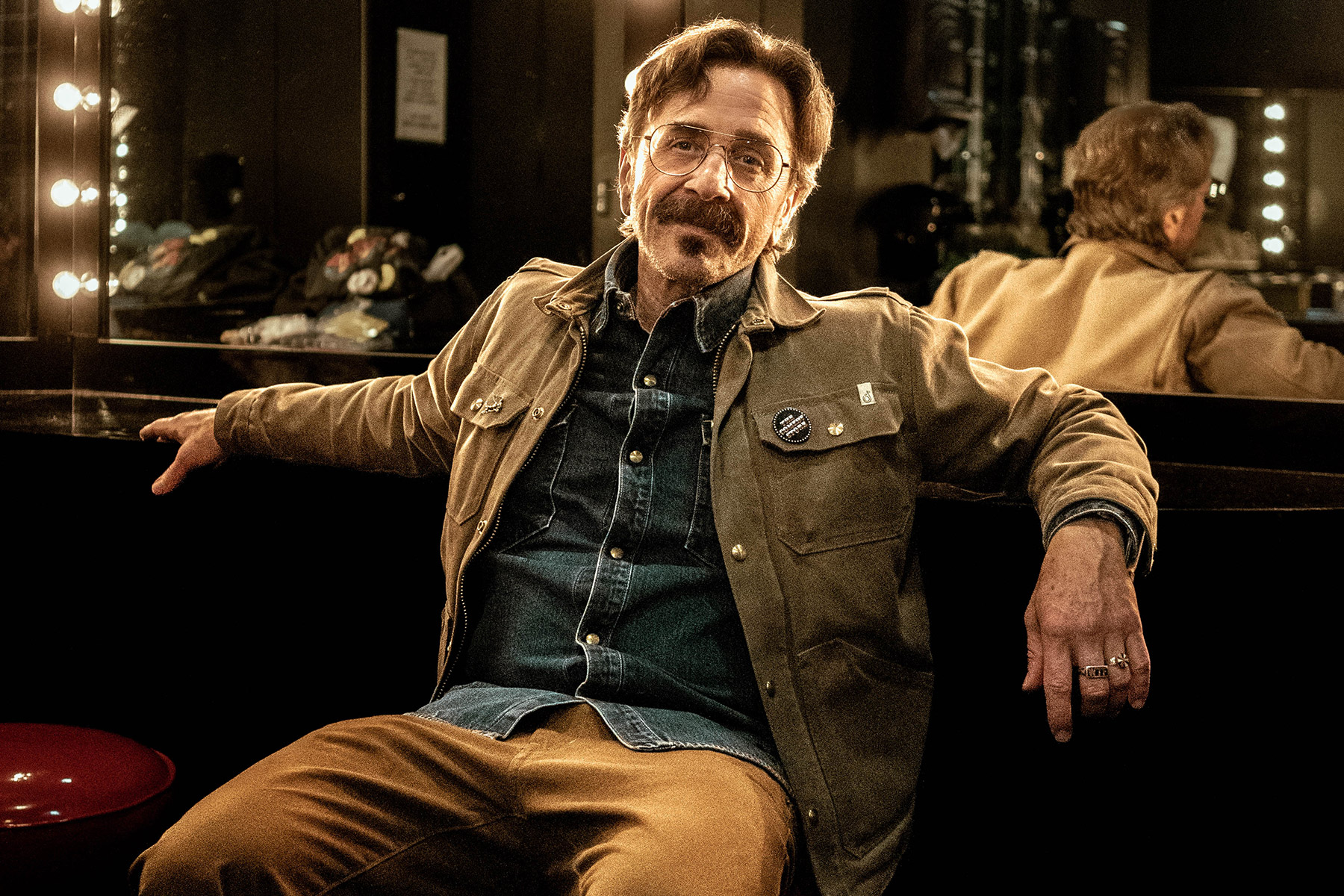
Tim Dillon will not be traveling to the Riyadh Comedy Festival next month. The California comedian and host of The Tim Dillon Show podcast says he was fired from the Oct. 8 Saudi Arabia festival for comments he made about the country on Joe Rogan‘s podcast.
Besides losing a $375,000 payday (an amount Dillon confirmed to Rogan), he also lost a nearby warm-up gig in Dubai two nights before his Riyadh appearance after mixing up the Arab emirate with Abu Dhabi (the rival cities are both part of the United Arab Emirates).
“I mixed them up — apparently this is a big deal over there. This is a real problem,” he said on a recent episode of his podcast. “This is not a malicious slander. It’s a mistake.”
The Riyadh Comedy Festival — which mostly takes place at the Bakr Al-Sheddi Theatre and ANB Arena from Sept. 25 to Oct. 9, features a number of top tier comedians including Dave Chappelle, Bill Burr, Gabriel Iglesias, Aziz Ansari, Kevin Hart, Jeff Ross, Chris Distefano, Tom Segura, Jo Koy, Sam Morril, Hannibal Buress, Andrew Schultz, Sebastian Maniscalco, Whitney Cummings, Jimmy Carr, Louis CK, Pete Davidson, Russell Peters and Chris Tucker.
“Supposedly, MBS is a fan of mine,” Dillon said two weeks ago on the Joe Rogan Experience podcast, referring to Saudi head of state Mohammed Bin Salman.
Dillon was reportedly fired from the festival for claiming that Saudi Arabia relies on slave labor — a controversial take on the country’s foreign laborers laws that some groups, including Human Rights Watch, have criticized as “slavery-like.” Legally, slavery was abolished in the Kingdom in the 1960s.
Dillon said the slavery jokes were a misunderstanding with his Saudi hosts, saying on his podcast, “I was defending them for having slaves. I literally said, ‘Slaves are hard workers and for the most part agreeable.’ But they didn’t like that.”
“You can literally support somebody too much,” he added. “In life, this happens. Too many compliments; too much support — and then they turn on you.”
He clarified his comments further, noting, “If i was a slave — not that I want to be one, but if I was and I built this really nice thing, I might say to my slave children, ‘Daddy built that,'” concluding, “Apparently this got to the people in Saudi Arabia and they were unhappy about it.”
The Riyadh Comedy Festival opens Sept. 25 with performances by Burr, Maz Jobrani and Andrew Santino and Bobby Lee from the Bad Friends podcast. More here.
Entertainment
Wilson Phillips, Kenny Loggins & More to Perform at Charity Concert Honoring Brian Wilson & The Beach Boys
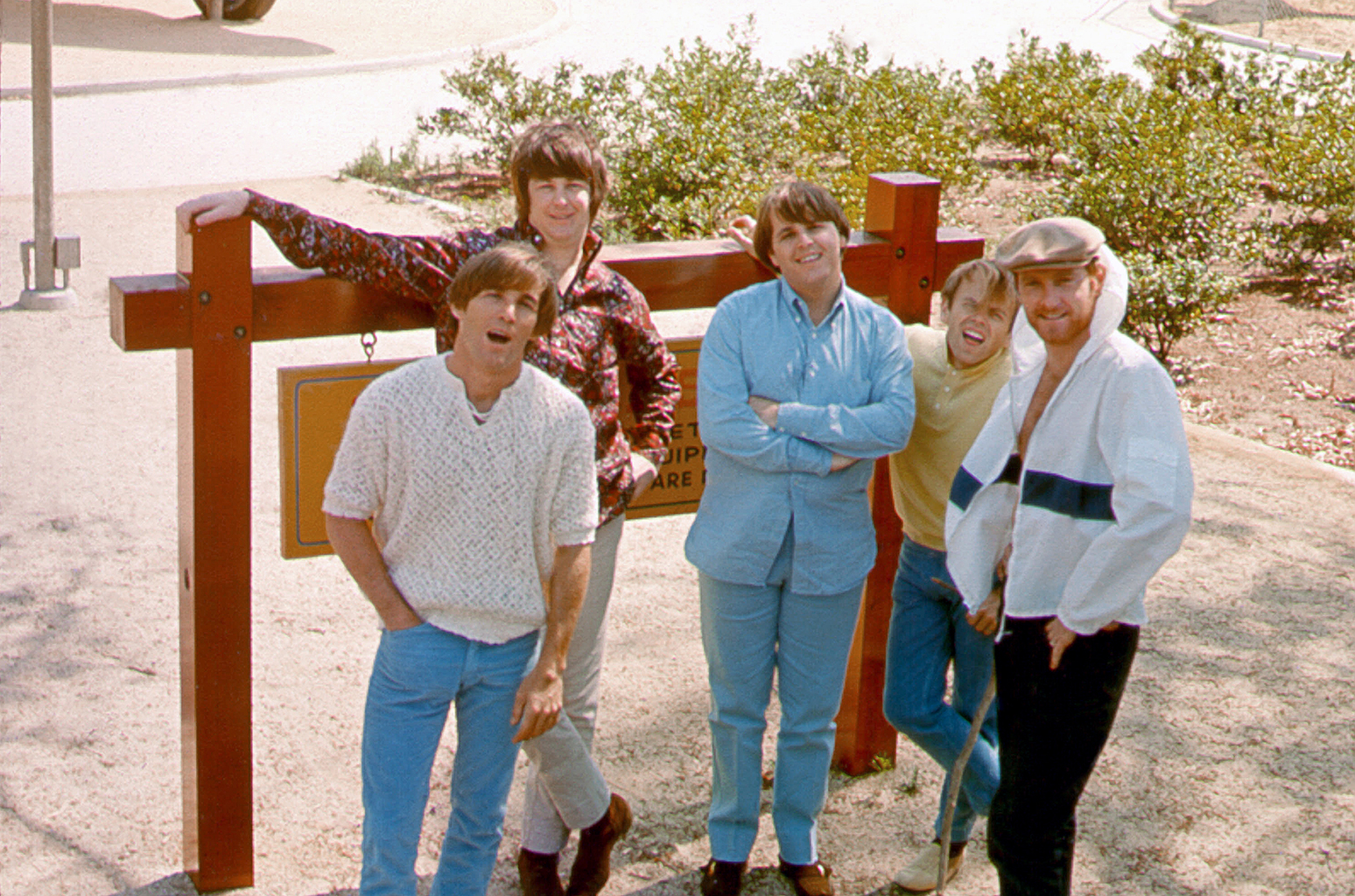
Wilson Phillips, Kenny Loggins, David Pack of Ambrosia and more are set to perform at a charity concert celebrating the music of Brian Wilson and The Beach Boys on Saturday, Sept. 27 at the Granada Theatre in Santa Barbara.
Wilson Phillips features two of Wilson’s daughters, Carnie and Wendy Wilson, as well as Chynna Phillips, the daughter of John and Michelle Phillips. The concert will also feature Brian Wilson’s grandchildren, so it will spotlight three generations of the Wilson family.
The concert, dubbed An All-Star Tribute to the Music of Brian Wilson & Songs of The Beach Boys, will feature the Folk Orchestra of Santa Barbara. Other guest performers are expected to include The Honeys; former members of The Beach Boys and the Brian Wilson Band; and keyboardist Don Randi (The Wrecking Crew); with appearances by Rosemary Butler (Jackson Browne), Ken Stacey (Elton John), Hunter Hawkins (Kenny Loggins), Carly Smithson (American Idol), Alisan Porter (The Voice) and poet Stephen J. Kalinich. These acts will be backed by The Tribe Band, who will perform an array of Beach Boys favorites.
The show begins at 7:30 p.m. Here’s a link for tickets. VIP packages are also available.
Proceeds will be donated to Adam’s Angels, a local group of volunteers, and the Surfrider Foundation of Santa Barbara, dedicated to the protection and enjoyment of the world’s oceans and beaches.
Brian Wilson died on June 11 at age 82. He was the third member of the fabled group to pass, following brothers Dennis in 1983 at age 39 and Carl in 1998 at age 51.
Entertainment
AI Artist Xania Monet, Diddy Sentencing Looms, Ticketmaster Lawsuit & More Music Law News

THE BIG STORY: If you needed another clear sign that artificial intelligence is seeping into every aspect of American cultural life, here’s one: An AI artist just signed a record deal, the hallowed milestone of success for any emerging musician.
As first reported by Billboard last week, Xania Monet — the avatar of a woman named Telisha Jones who writes her own lyrics but uses Suno to create the music — inked a record contract worth millions. The deal has quickly become the talk of the industry, including from stars who have spoken out, including Kehlani, who said: “I don’t respect it.”
But…what exactly is a label buying here? It remains unclear the extent to which you can secure intellectual property rights to AI-generated songs, raising hurdles for monetizing them. And platforms like Suno are still facing trillion-dollar infringement lawsuits that essentially claim the technology itself is illegal. For more, go read our full story.
You’re reading The Legal Beat, a weekly newsletter about music law from Billboard Pro, offering you a one-stop cheat sheet of big new cases, important rulings and all the fun stuff in between. To get the newsletter in your inbox every Tuesday, go subscribe here.
Other top stories this week…
BLIGE CASE TOSSED – A federal judge dismissed a lawsuit against Universal Music Group claiming Mary J. Blige’s enduring 1992 hit “Real Love” infringed the oft-sampled 1973 funk song “Impeach the President” by the Honey Drippers, which has been used by Run-DMC, Dr. Dre, Doja Cat and many others over the years. The judge said the two songs were so different that nobody would hear the earlier song: “The songs do not sound the same.”
DIDDY SENTENCING – Attorneys for Sean “Diddy” Combs urged a federal judge to sentence him to just 14 months in prison on his prostitution convictions, asking him to reject the kind of “draconian” punishment sought by prosecutors. Because the star has already served 13 months in jail since he was arrested, that sentence would see him released almost immediately: “It is time for Mr. Combs to go home.”
LETTERS OF SUPPORT – To help make that argument, Diddy’s lawyers filed dozens of letters from supporters, pleading with the judge to show lenience toward the rapper when he sentences him next month. They came from Diddy’s mother and kids, from ex-girlfriend Yung Miami and from an executive at hip-hop label Quality Control Music — among many others.
SUNO SUIT 2.0 – Separate from the Xania Monet situation, the major record labels filed an amended version of their copyright lawsuit against the AI music firm, adding new allegations that the company illegally “stream-ripped” songs from YouTube to train its models. That’s a hugely important new claim: In a separate such lawsuit against Anthropic, a federal judge ruled this summer that AI training itself is likely a legal “fair use” but that using pirated works to do it could lead to many billions in potential damages.
FTC, YEAH YOU KNOW ME – The Federal Trade Commission filed a lawsuit against Live Nation and Ticketmaster accusing the concert giants of advertising misleading ticket prices and allowing scalpers to buy up tickets and resell them at inflated prices. The case came months after the agency sued a ticket broker that allegedly used thousands of fake Ticketmaster accounts to buy and resell tickets to Taylor Swift concerts and other events — and two years after Live Nation was hit with a sweeping monopoly lawsuit by the U.S. Department of Justice.
HYPE VID SETTLEMENT – Mike Tyson settled a lawsuit claiming he illegally used the Jay-Z, DMX and Ja Rule song “Murdergram” in an Instagram video promoting his boxing match against Jake Paul. The case was filed by Ty Fyffe, a producer and co-writer of the 1998 track who claimed that Tyson had willfully infringed his copyrights by using the song in a training video ahead of his much-hyped fight with Paul.
LOSE YOUR … CASE? – Meta urged a federal judge to dismiss a lawsuit from Eight Mile Style, a music publisher that owns hundreds of Eminem songs, which claims the social media giant made “Lose Yourself” and other iconic tracks available to billions of users. In the motion, Facebook’s lawyers argued the case was “remarkably short on specifics” about actual infringing material: “Fanciful estimates are not a substitute for well-pleaded facts,” the company wrote.
NEVER MEANT TO CAUSE YOU ANY PAIN – The Prince estate asked a judge to dismiss a lawsuit by the late singer’s Purple Rain co-star Apollonia (Patty Kotero) that claims the estate is trying to “steal” her name, arguing it has no intention of forcing her to change her name — and has repeatedly told her as much. The filing did say, however, that Apollonia secured her own trademarks during “the chaotic period following Prince’s death.”
SEX TAPE LEAK CASE – Colombian pop star Beéle was hit with a lawsuit alleging invasion of privacy and sexual cyberharassment from ex-girlfriend Isabella Ladera, claiming he is responsible for leaking their sex tape. Beéle’s reps have denied that he was the source of the leak and said the singer is “also a victim,” but Ladera’s lawsuit placed the blame squarely on him: “Only two people had the videos, and Ladera had already erased them almost a year and a half before.”
MEGAN THEE PLAINTIFF – Lawyers for Megan Thee Stallion argued in court filings that the social media personality DJ Akademiks must reveal whether Tory Lanez sent him a confidential DNA testing report during the singer’s criminal case. The filings came amid discovery in a defamation case against Milagro Gramz, a gossip blogger and ardent online defender of Lanez.
-

 Entertainment6 months ago
Entertainment6 months agoNew Kid and Family Movies in 2025: Calendar of Release Dates (Updating)
-

 Entertainment3 months ago
Entertainment3 months agoBrooklyn Mirage Has Been Quietly Co-Managed by Hedge Fund Manager Axar Capital Amid Reopening Drama
-
Tech6 months ago
The best sexting apps in 2025
-

 Entertainment5 months ago
Entertainment5 months agoKid and Family TV Shows in 2025: New Series & Season Premiere Dates (Updating)
-

 Tech7 months ago
Tech7 months agoEvery potential TikTok buyer we know about
-
Tech7 months ago
iOS 18.4 developer beta released — heres what you can expect
-

 Tech7 months ago
Tech7 months agoAre You an RSSMasher?
-

 Politics7 months ago
Politics7 months agoDOGE-ing toward the best Department of Defense ever


